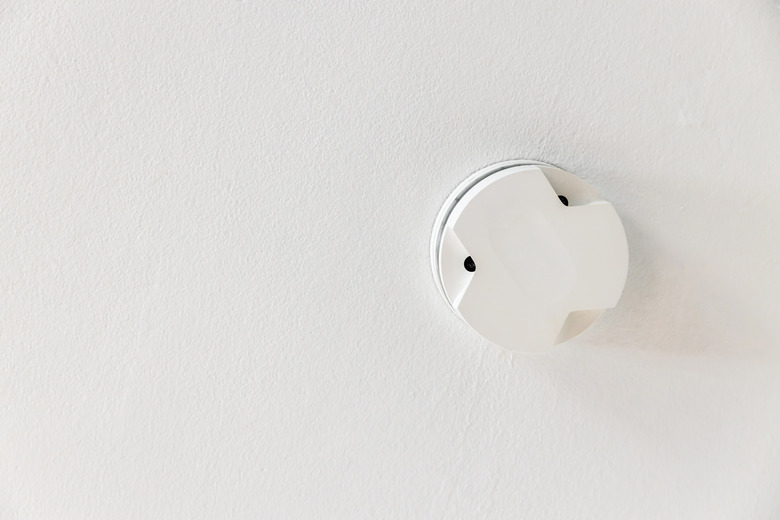What Is The Decibel Level Of A Smoke Detector?
We may receive a commission on purchases made from links.
Being loud is a smoke detector's job — but "loud" means different things to different people's ears and in different environments. The smoke detector that's loud enough to wake you up in your quiet house might be no match for a noisy stadium or other noisy environment. That's why smoke detector systems have alarms that fall into a range of decibel levels, with the quietest smoke alarms generally starting at 85 decibels.
Decibel Level of Smoke Detectors
Decibel Level of Smoke Detectors
The National Fire Protection Association sets standards for smoke detector systems in the U.S. To comply with NFPA standards, the smoke alarm you install must emit an alarm that's at least 85 decibels and not more than 110 decibels. The kinds of smoke detectors that are sold for home use — including photoelectric smoke detectors, ionization smoke detectors and dual-sensor smoke detectors — commonly have an 85-decibel alarm.
Commercial properties tend to be much louder than an average home, and an 85-decibel alarm may not be loud enough to get everyone's attention in a noisy business. The NFPA provides specific guidance to help commercial properties determine the right smoke detector alarm volume. It says that smoke alarms must be at least 15 decibels above the average ambient sound level in a building, or at least 5 decibels above the building's maximum sound level with a duration of at least 60 seconds.
For example, say a high school has a typical ambient sound level of 75 decibels, but can get as loud as 90 decibels during the five-minute periods when students are moving in the hallways between classes. The smoke alarms would have to be at least 95 decibels to meet the NFPA's standards.
For comparison, a normal conversation or the sound of a running air conditioner is somewhere around 60 decibels, according to the National Center for Environmental Health. The sound of city traffic from inside a car is 80 to 85 decibels, and a running motorcycle is around 95 decibels. Music played through headphones at the maximum volume your device allows, or live rock music played at a concert, may measure as high as 110 decibels.
Hearing Concerns and Smoke Detectors
Hearing Concerns and Smoke Detectors
While being in the proximity of a loud smoke alarm may be unpleasant and even cause some temporary ringing in your ears, it's unlikely that occasional exposure will cause any permanent hearing damage. According to the NCEH, prolonged exposure to sounds above 85 decibels can cause hearing loss, but damage is generally proportional to the volume and length of exposure.
In other words — if you get out of the building when your smoke alarm goes off, your hearing probably won't be affected. But if your work requires you to be around an alarming smoke detector often, your employer should provide hearing protection of some kind to mitigate the risk.
For people who already have hearing loss, standard smoke detectors may not be loud enough to alert them to the presence of fire. Installing units that use strobe lights and vibration is an important safety procedure for people with hearing loss. Some smoke detectors also use low-frequency alarms that are more effective for people who can't hear high-pitched sounds.
